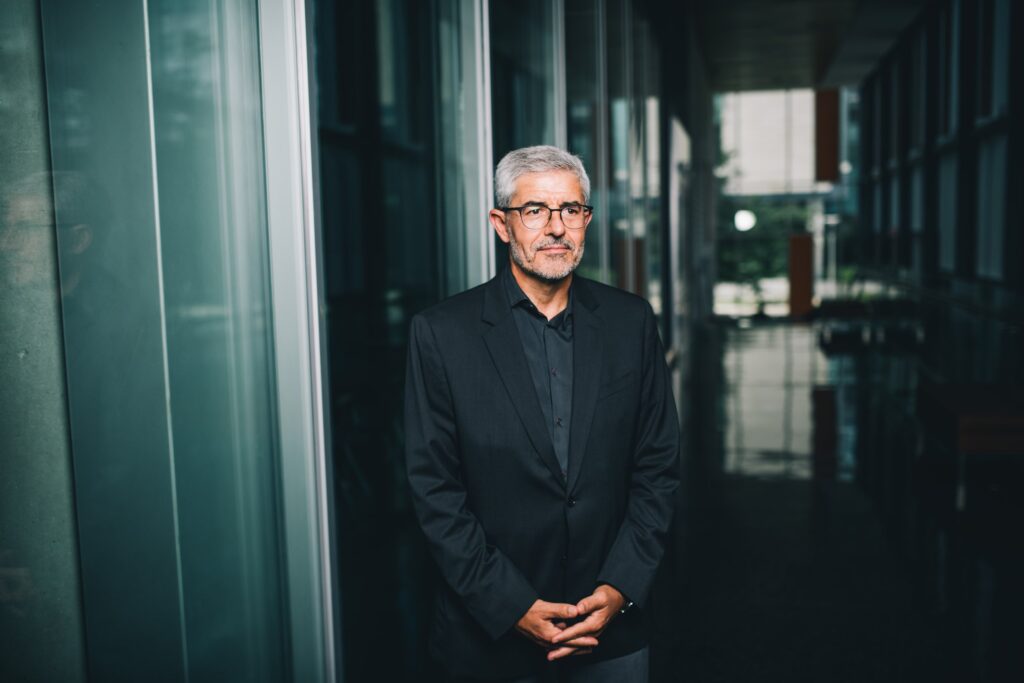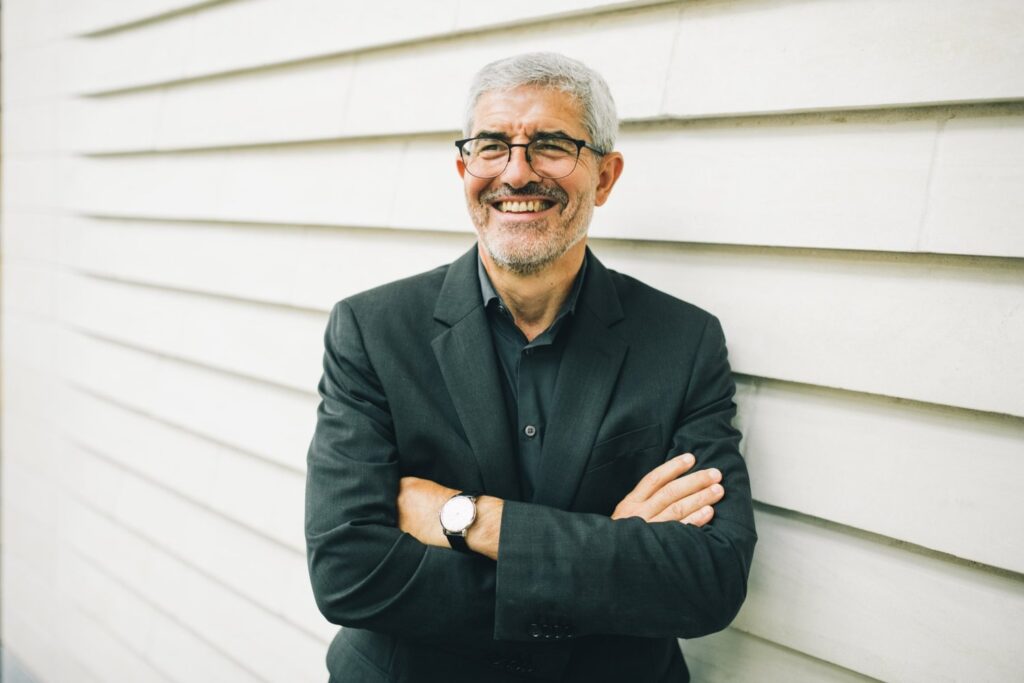Since launching in 2014, Dell Medical School at The University of Texas at Austin has been rethinking the role of academic medicine in improving health, particularly for those most in need. And we’re just getting started.
Nominated and selected by their peer leaders, Dell Med’s Visionaries are on a mission to revolutionize how people get and stay healthy. Meet José Del R. Millán, PhD part of the 11 visionaries who tell the story of what happens

Your brain can be taught to signal a computer. If José del R. Millán has his way, brain-computer interfaces will one day make wheelchairs obsolete.
Ten years after his stroke, a man paralyzed from the waist down starts “walking,” operating an exoskeleton with his mind. Researchers led by José del R. Millán, Ph.D., study the electrical activity of the man’s brain indicating when he wants to use the robot to take a right step versus a left one.
Many sessions later, the results are stunning: The man has less pain. Sensation is beginning to return to his legs. He is able to begin activating his leg muscles voluntarily.
It’s real, and it’s just one of the advances that’s possible with the use of brain-computer interfaces — tools that allow the human brain to connect with an external force to control movement or modulation.
Brain Signaling Is a Skill (Who Knew?)
“The main thing we’ve learned is that people have to be taught how to change their brain signals,” says Millán, a longtime researcher in these interfaces. “Our brain has evolved to control our body, not to relay electrical signals to computers. But once we can teach people that skill — and it really is a skill — that’s when we see incredible advances in their condition.”
Millán came to The University of Texas at Austin in 2019 to do this work at Dell Med and the Cockrell School of Engineering, continuing a career contributing to an international body of knowledge surrounding brain-machine interfaces. Most recently, he was responsible for establishing the Center for Neuroprosthetics at the École Polytechnique Fédérale de Lausanne in Switzerland.

A Draw to Texas: Medicine, Engineering & a World-Class University
The Texas partnership is unique: A preeminent computer engineer supported by a world-class engineering school, collaborating closely with neurologists at a young, health equity-focused medical school. The possibilities of Millán and his team’s work span prosthetics, interventions for making neurosurgery safer, rehabilitation for nerve injury and damage, and much more. For the 5 million+ Americans living with some type of paralysis, for example, the advances promise to be life changing.
“I have these incredible minds around me — engineers and doctors and patients and families — who trust me to collaborate with them and take care of one another’s ideas. This is the type of multidisciplinary teamwork needed to move forward meaningfully.”
Presentation of the 11 Visionaries can be found there
Article courtesy of Dell Med


